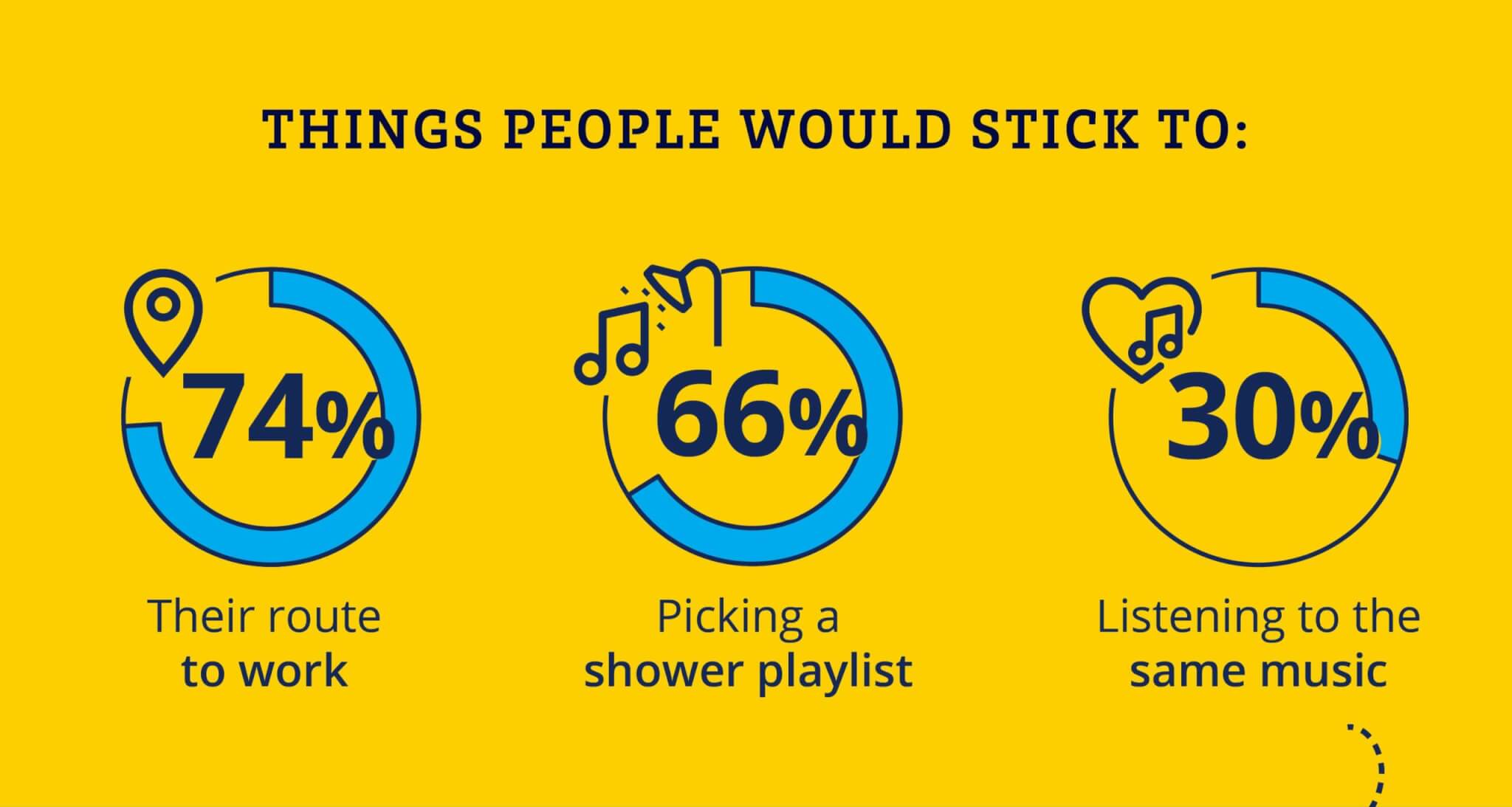NEW YORK — Are you stuck in a rut? The average American hasn’t tried a new restaurant in five months, a recent survey reveals. The poll explored how open 2,000 adults were to trying new things and discovered that their favorite restaurants aren’t the only thing many people are sticking to.
The average person also hasn’t found a new song they liked or watched a new TV show in four months.
Conducted by OnePoll on behalf of Funjet Vacations, the survey shows that 56 percent of all respondents identify as “creatures of habit,” sharing that they like what they like, while only 38 percent prefer to venture out of their comfort zone.
Those who stick to their comfort zone said they stay within this realm of knowledge because they know what they like (64%) and they enjoy the comfort that comes with familiarity (60%). While most of these respondents are interested in occasionally stepping out of their comfort zone (78%), nearly one in four have no interest in straying from what they know.
On the other hand, those who like trying new things say that doing so satisfies their curiosity (53%) and helps them keep an open mind (52%).

“Booking vacations at all-inclusive resorts caters to both of these types of travelers, as guests can choose to stay in their comfort zone or try new things based on the large variety of activities and restaurants offered on property for them to choose from,” says spokesperson Dana Studebaker, vice president of marketing, consumer brands at Apple Leisure Group, in a statement.
The survey also examined personality differences between both groups and found that those who prefer to try new things are more likely to say they’re “very happy” with life (31%) and enjoy traveling more (74%).
“Creatures of habit” are more introverted (52%) and are more likely to have regrets about choices they’ve made in the past (76%). When asked which activities they prefer to stick to, Americans wouldn’t tire of listening to the same music (30%) and visiting the same restaurants (22%). Similarly, they’d rather stick to what they know when considering their shower playlist (66%) or their route to work (74%).
However, they can’t say they’d stick to the same thing when it comes to eating the same thing for lunch every day (40%), watching the same TV show/movies (25%), or having the same daily routine (23%). Respondents are especially keen on new experiences when it comes to eating at a restaurant (53%) or choosing a vacation destination (67%).
One in eight respondents said their day would be ruined if their plans for the day got canceled, but 26 percent shared that they would be upset at first, yet excited to find something new. This often works out since 65 percent have discovered a new favorite experience because their original plans fell through.
Being on vacation seems to bring out people’s adventurous side, too, as 59 percent of all respondents are more likely to try a new activity while on vacation.
“Staying within your comfort zone provides security in making the right decisions and guarantees fulfillment as you choose what you already enjoy,” says spokesperson Nicole Perez, director of sales at Princess Hotels and Resorts. “When it comes to travel, it’s when we venture beyond our boundaries that we discover the richness of life’s experiences and new possibilities for excitement and self-growth.”
Survey methodology:
This random double-opt-in survey of 2,000 general population Americans was commissioned by Funjet Vacations between September 21 and September 26, 2023. It was conducted by market research company OnePoll, whose team members are members of the Market Research Society and have corporate membership to the American Association for Public Opinion Research (AAPOR) and the European Society for Opinion and Marketing Research (ESOMAR).

